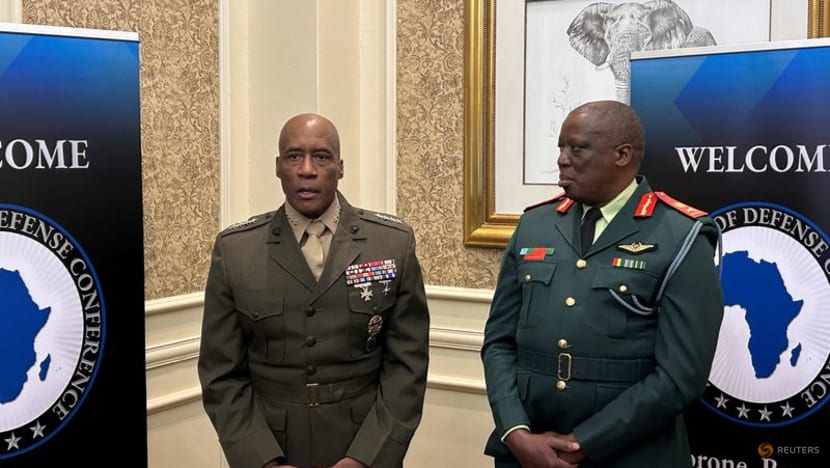US weighing future of military command in Africa, top general says

US Marine General Michael Langley, head of Africa Command, speaks to reporters alongside Botswana Defence Force Commander Lt Gen Placid Segokgo at a defense conference in Gaborone, Botswana on Jun 25, 2024. (Photo: REUTERS/Phil Stewart)
NAIROBI: The United States is assessing the future of its military command for Africa, its top general for the continent said on Tuesday (May 27), and called on African governments to make their views on its possible elimination known in Washington.
President Donald Trump's administration is considering merging AFRICOM, which became a distinct geographical command in 2008, with the US command in Europe to cut bureaucracy, American media outlets reported in March.
Speaking to reporters before a conference of African defence chiefs in Kenya, AFRICOM's commander, General Michael Langley, said he had discussed the issue with officials on the continent.
"I've talked to a number of ministers of defence and a few presidents and told them we were assessing," Langley said.
He said governments should make their views about AFRICOM's future known through their ambassadors in the US.
"That's what I tell them. I said: 'okay, if we're that important to (you), you need to communicate that and we'll see'."
Before 2008, US military activities in Africa were handled by commands from other regions. AFRICOM's creation reflected rising US national security interests on the continent, including Islamist insurgencies and competition with China and Russia.
In West Africa, where groups with ties to al Qaeda and Islamic State have grown in recent years, US security influence has waned following a series of military coups.
The putsches forced Washington to pull back on security support and brought to power juntas that have turned to Russia for assistance.
Last year, the ruling junta in Niger ordered the US to withdraw its nearly 1,000 military personnel from the country and vacate a US$100 million drone base.
Langley said the US had nevertheless maintained some intelligence sharing with the military regimes in the Sahel region and was looking for "other ways to continue to stay engaged".












